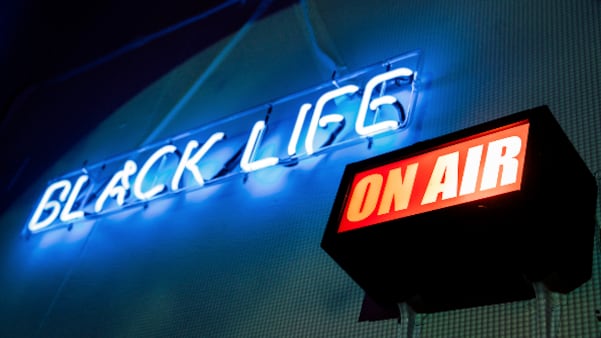Amid the demand for Black art that's followed the worldwide protests against police brutality, it's often painfully apparent what's still missing for Portland artists—a respect for Black art and the artists who make it.
"As Black people living in Portland," says Melanie Stevens, who is one half of curatorial duo the Nat Turner Project, along with mononymous artist Maximiliano, "we operate on this binary of both invisibility and hypervisibility."
So in May, before the uprising, NTP teamed up with a Black Art Ecology of Portland to provide $200 stipends to local BIPOC artists for financial relief during the pandemic. Initially, the two projects planned to give out 28 stipends. Instead, they raised enough funds to give stipends to 36 artists. In June, NTP and BAEP handed out another round of 30-plus stipends and began fundraising for a third round last month.
NTP and BAEP have been working to provide tangible support for Portland artists of color long before the pandemic. Since its inception in 2016, NTP has been awarding grants of $250 to $1,250 to Black and POC Portlanders through their Drinking Gourd Fellowship. Run by artist Sharita Towne, BAEP works with organizations around town to ensure that BIPOC artists have access to the resources they need. Both efforts are intended to help artists not only showcase their work in a space where it's understood but provide spaces where their artistic prowess isn't analyzed against white dominance and supremacy.
"I know that I was frustrated with the kind of lack of care and rigor around which the artworks of artists of color was treated," says Stevens of the founding of NTP. "We wanted to sort of counteract that by creating space to show the work of artists of color."
Though other local organizations are also providing COVID relief grants to artists, including grants specifically for BIPOC artists, the fact that NTP and BAEP aren't 501(c)(3) nonprofit organizations allows them to treat the fund more like a resources redistribution network than a traditional nonprofit.
"We need more resources," says Maximiliano. "More resources mean more visibility."
Emma Berger's Mural of George Floyd Sparked a Massive Community Art Project Downtown
Photographer Linneas Boland-Godbey Hosts Art Therapy for Activists
Two Artist-Run Projects Have Teamed Up to Create an Emergency Relief Fund for BIPOC Artists
Portland's Laid-Off Stage Hands Have Made and Donated Thousands of Masks During the Pandemic
A Portland Media Accessibility Organization Has Launched an All-Local Online Streaming Service

